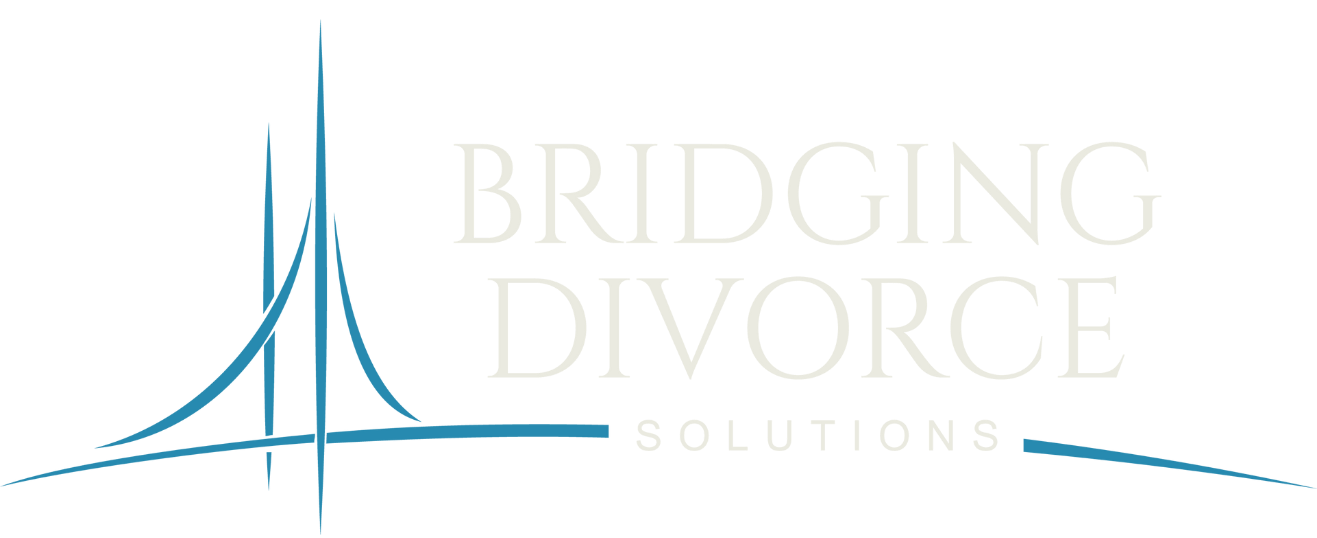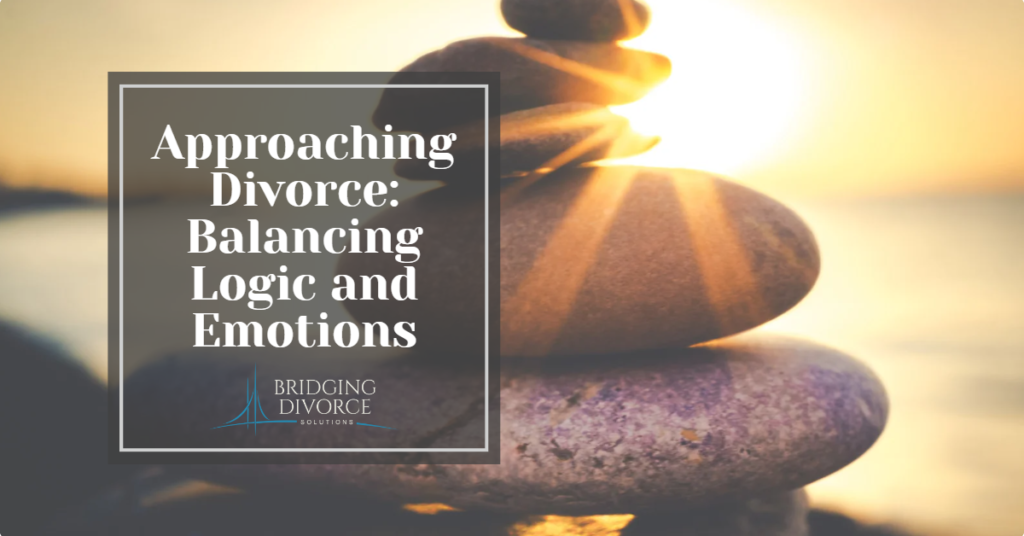While there are two schools of thought on how to approach divorce, there is a third option that recognizes the importance of acknowledging the layers upon layers of feelings that can impact the rational choices that need to be made. Let’s explore these three approaches as well as some tools that can help you be in a better mental and emotional place to make serious decisions – especially financial ones – during a divorce.
Divorce Schools of Thought
One school of thought advocates for checking your emotions at the door and making practical decisions as if your marriage was a business venture. This view emphasizes the financial piece, as though there were no emotional impact. The other side works on the emotional support and coping skills needed in this enormous life transition without tending the practical necessities.
Now, the third option recognizes the need to make business-like decisions about finances, schedules, and assets while acknowledging the emotions that impact our choices. As much as we’d like to consider ourselves logical beings, emotion drives our decision-making. Divorce is one of the most highly emotional events we can experience, and it is unrealistic to think that we can make logical decisions without information and coaching through the process.
It is essential to have a process that coaches you to make the best choices for yourself. This process saves time, money, and conflict that can be encouraged by the court system.
Tools To Help You Balance Logic and Emotions
The way I see it, there is a toolbox separated into three sections: well-being tools, tools for meetings, and thoughts for moving forward. We discussed well-being in another blog, so let’s dive into tools for meetings and thoughts for moving forward.
Tools for Meetings
Meetings with your ex-spouse, attorney, or on courtroom hearings can be incredibly taxing. You may experience visceral responses that can make it hard to concentrate on the topics at hand. Here are some tools you can use if you find yourself unsettled during meetings.
Build in a Buffer Zone
Schedule time before and after the meeting to gather yourself without feeling anxious or stressed. Consider checking in with a guided meditation for ten minutes before the scheduled start. Even ten minutes of music that you love can make a world of difference.
Plan a Post-Meeting Session
Schedule time after the Collaborative team meetings to debrief with a supportive friend or pet. Knowing that scheduled time was on the other side helped me to keep my cool when things got heated and gave me space to transition back into whatever responsibility was on the other side, whether it was a work meeting or making dinner.
Play Games
Turning the triggers into games is one of the most useful tools you can implement during meetings. If something triggers negative feelings, try to think of a way to turn that into a game. For example, if you know that at some point, the conversation will turn to talking about you as if you were not there, make a small bet with yourself before the meeting as to how long it would take before the expected behavior would occur. Concentrate on watching the clocks and seeing when the first time it happened. It distracts you from becoming emotionally engaged or taking the bait in something that is triggering.
Thoughts for Moving Forward
It is important to have a mindset that supports you during the divorce process. The following are some thoughts that can help to be in a better place mentally and emotionally.
Letting Go
Letting go is essential during the divorce process. You should let go of the past and start moving forward. You cannot change the past but can choose how to move forward.
Self-Care
Self-care is crucial during the divorce process. You should take care of yourself and practice self-compassion. It is essential to eat healthy, exercise regularly, and practice good sleep hygiene.
Support System
You should have a support system during the divorce process. It can be friends, family, or a therapist. Surround yourself with people who are supportive and who have your best interests at heart.
Divorce is a complex and emotionally charged process that can take a toll on both your mental and emotional well-being. Approaching it with either an entirely emotional or purely logical mindset is not the best way to navigate this life-changing event. While making practical decisions about finances, schedules, and assets is essential, it is equally important to acknowledge and address the layers of emotions that impact our decision-making process. By using the right tools and techniques, we can be in a better mental and emotional place to make important decisions while keeping ourselves sane and healthy.
Remember, divorce is not the end but the beginning of a new chapter in your life, and with the right approach, it can be a positive one.
If you’re someone who wants to find the balance between rational choices and emotional unrest – we’ve got you. Just book a call to talk about what’s next in getting you the right support for your divorce.




